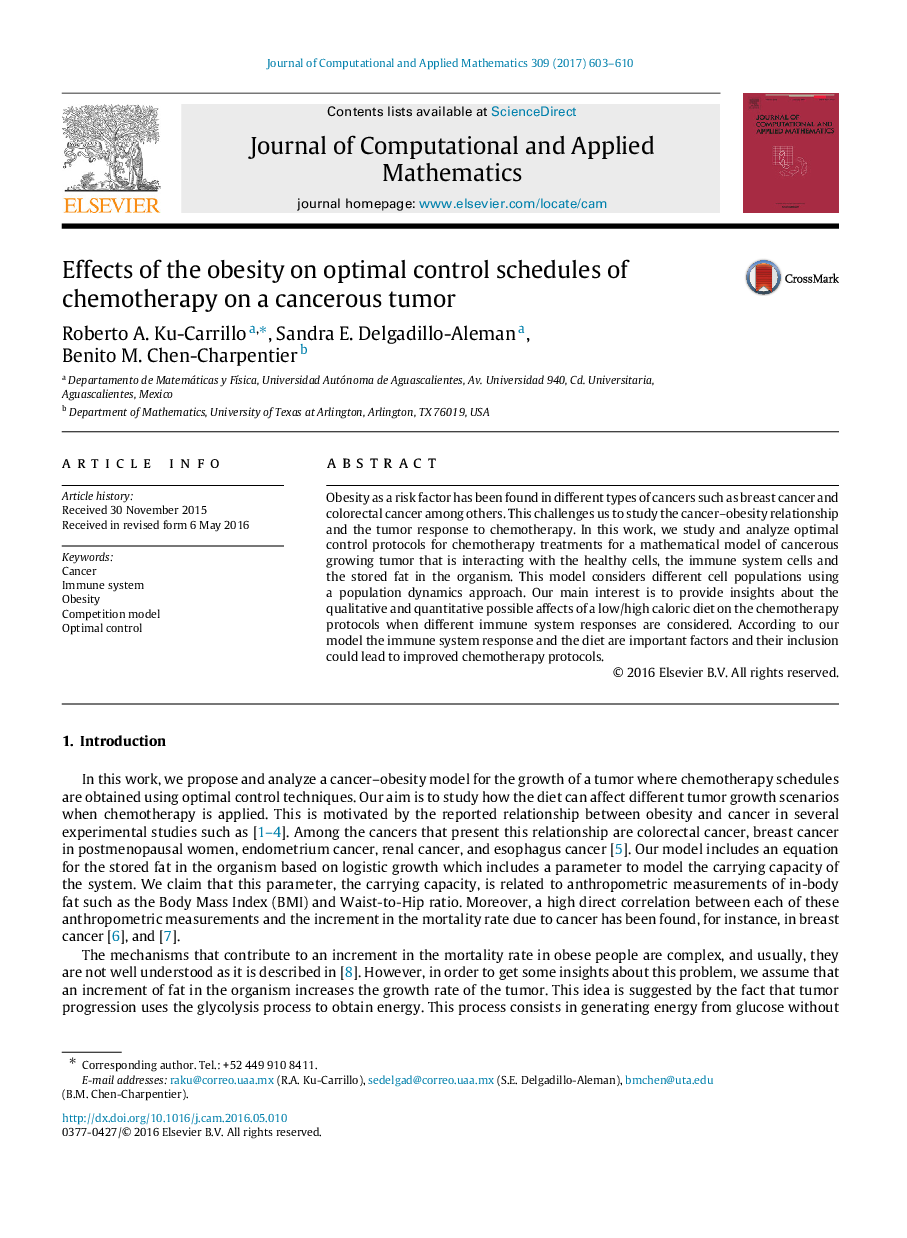| کد مقاله | کد نشریه | سال انتشار | مقاله انگلیسی | نسخه تمام متن |
|---|---|---|---|---|
| 4637836 | 1631982 | 2017 | 8 صفحه PDF | دانلود رایگان |
کلمات کلیدی
1.مقدمه
2. مدل چاقی - سرطان با شیمی درمانی
1.2. فرضیه های مدل
2.2 تعادل بدون دارو
2.2.1. عدم وجود چربی در آدپوسیت ها
2.2.2. تعادل با وجود چربی در آدپوسیت ها F ≠ 0
3. مشکل کنترل بهینه و شیمی درمانی
4. شبیه سازی مدل
4.1. پاسخ ایمنی بالا و کم
4.2. پاسخ ایمنی متوسط
شکل 1. حل های کنترل بهینه برای رژیم غذایی کم کالری (a) و پرکالری (b) به مدت 30 روز. برای هر دو مورد (a) و (b) نمودار سمت چپ حل بدون استفاده از شیمی درمانی و نمودار سمت راست حل با شیمی درمانی است.
شکل 2. حل های کنترل بهینه برای رژیم غذایی کم کالری (a) و پرکالری (b) به مدت 60 روز. برای هر دو مورد (a) و (b) نمودار سمت چپ حل بدون استفاده از شیمی درمانی و نمودار سمت راست حل با شیمی درمانی است.
جدول 1. درصدهای کاهش شیمی درمانی با رژیم غذایی کم و پر کالری.
5. نتیجه گیری
Obesity as a risk factor has been found in different types of cancers such as breast cancer and colorectal cancer among others. This challenges us to study the cancer–obesity relationship and the tumor response to chemotherapy. In this work, we study and analyze optimal control protocols for chemotherapy treatments for a mathematical model of cancerous growing tumor that is interacting with the healthy cells, the immune system cells and the stored fat in the organism. This model considers different cell populations using a population dynamics approach. Our main interest is to provide insights about the qualitative and quantitative possible affects of a low/high caloric diet on the chemotherapy protocols when different immune system responses are considered. According to our model the immune system response and the diet are important factors and their inclusion could lead to improved chemotherapy protocols.
Journal: Journal of Computational and Applied Mathematics - Volume 309, 1 January 2017, Pages 603–610
